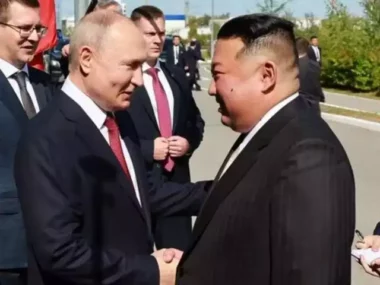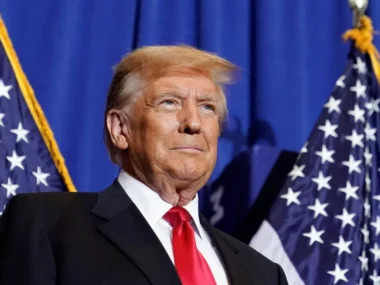Tensions Rise: The Impact of Latest Sanctions on U.S.-Russia Relations
In recent months, the geopolitical landscape has been significantly altered by escalating tensions between the United States and Russia. At the heart of this volatile relationship lies an intricate web of sanctions, implemented by the U.S. in response to a multifaceted array of grievances ranging from interference in democratic processes to military aggression in Ukraine. As the ripple effects of these sanctions continue to unfold, it is crucial to consider their implications for both nations and the broader international community.
Background of Sanctions
The imposition of sanctions against Russia has become a key component of U.S. foreign policy since the 2014 annexation of Crimea. The Biden administration, continuing the strategy of its predecessor, has ramped up punitive measures targeting various sectors of the Russian economy, including energy, finance, and technology. The sanctions have sought to pressure the Kremlin into changing its behavior, particularly concerning its actions in Ukraine and its alleged interference in U.S. elections.
In 2023, the U.S. introduced a new wave of sanctions aimed at further crippling Russia’s economic capabilities. These measures include restrictions on Russian exports and financial transactions, targeting oligarchs close to President Vladimir Putin, and tightening controls over technology that could enhance Russia’s military capabilities. The implications of these sanctions extend not only to Russia but also to global markets and international relations.
Immediate Economic Consequences
The sanctions have had a pronounced impact on the Russian economy, which has struggled to adapt to the prolonged isolation. While the initial shock was notable, with the ruble plummeting and inflation skyrocketing, Russia has sought to pivot towards alternative markets, particularly in Asia. However, the long-term effectiveness of these strategies remains uncertain, as reliance on a limited range of economies, like China, could expose Russia to significant vulnerabilities.
On the U.S. side, the sanctions have raised concerns about the potential for increased energy prices and supply chain disruptions. As Europe continues to grapple with its energy dependence on Russia, the sanctions have increased the urgency for the U.S. and its allies to diversify their energy sources. The global economic system could experience a tug-of-war as nations navigate between supporting U.S. sanctions and maintaining crucial trade relationships with Russia.
Geopolitical Fallout
The geopolitical ramifications of the sanctions cannot be overlooked. The U.S. has sought to build a coalition of support among its allies to counteract Russian aggression. NATO has seen renewed vigor, and countries such as Finland and Sweden have moved closer to membership in the military alliance. However, the sanctions have also led to a hardening of Russia’s stance, with the Kremlin framing them as a direct attack on its sovereignty, thereby fostering a narrative of resistance against Western encroachment.
As Russia deepens its ties with non-Western nations, there is the potential for a new geopolitical bloc to form, centered around anti-Western sentiment. This could challenge the existing international order and create a bifurcated global landscape, with nations forced to choose between aligning with the U.S. and its allies or siding with Russia and its partners.
Long-term Impacts on U.S.-Russia Relations
The trajectory of U.S.-Russia relations appears increasingly strained, with the latest sanctions adding to a long history of mistrust and confrontation. Gary Kasparov, the former chess champion turned political activist, has noted that these measures emphasize the importance of a unified approach to countering authoritarianism. However, experts warn that while sanctions can serve as a tool for bargaining, they can also entrench adversarial positions.
The long-term implications of the latest sanctions will hinge on several factors, including the response of the Russian populace to economic hardships, the effectiveness of U.S. measures, and the potential for a diplomatic resolution to ongoing conflicts. As conversations about arms control, cyber warfare, and human rights gain prominence, the prospect for a normalization of relations remains bleak.
Conclusion
As tensions rise and the landscape of U.S.-Russia relations continues to evolve, the impact of sanctions is palpable. While the U.S. government seeks to uphold democratic principles and counter aggression, the complexity of international relations means that the path forward is fraught with challenges. The interplay of global economies, alliances, and national interests will ultimately shape the future of this tumultuous relationship. As the world watches closely, the enduring questions of diplomacy, security, and stability remain at the forefront of discussions surrounding one of the most pressing geopolitical crises of our time.











